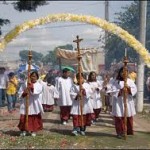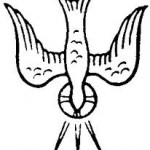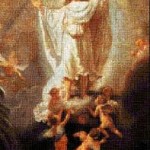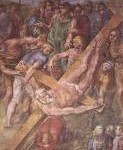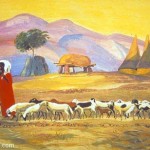Third Sunday of Easter – Cycle A
Reflecting on Luke 24: 13-35
The more I learn about Jesus and his times the more I understand why, even on Easter morning, even after hearing stories about an empty tomb, the disciples of Jesus returned to their home in Emmaus with heavy hearts.
We were hoping that he would be the one to redeem Israel, they told the Stranger who traveled with them. He didn’t redeem Israel after all. He didn’t call together an army, he didn’t call down thunder from heaven and make the Romans pay for their unspeakable atrocities. He didn’t rid Israel of the oppressor.
What good is a redeemer who doesn’t rid us of the Romans? Does God not see―does God not care― that they torture and brutalize us, and keep us in desperate poverty? What good is a redeemer who loves to the end, even loves those who murder him so unjustly? Who needs a redeemer like that?
We do.
The heavens opened, and angels rolled away the stone. The tomb was already empty, even though the stone had held it closed until that moment. Who needs a God like that?
We do.
Our hearts burned within us as the Stranger explained the scriptures to us, but we finally recognized him when he took, and blessed, and broke, and gave the Bread to us. Who needs a redeemer like that?
We do.
Forever and ever. Alleluia.
How does your own brokenness help repair the world?

